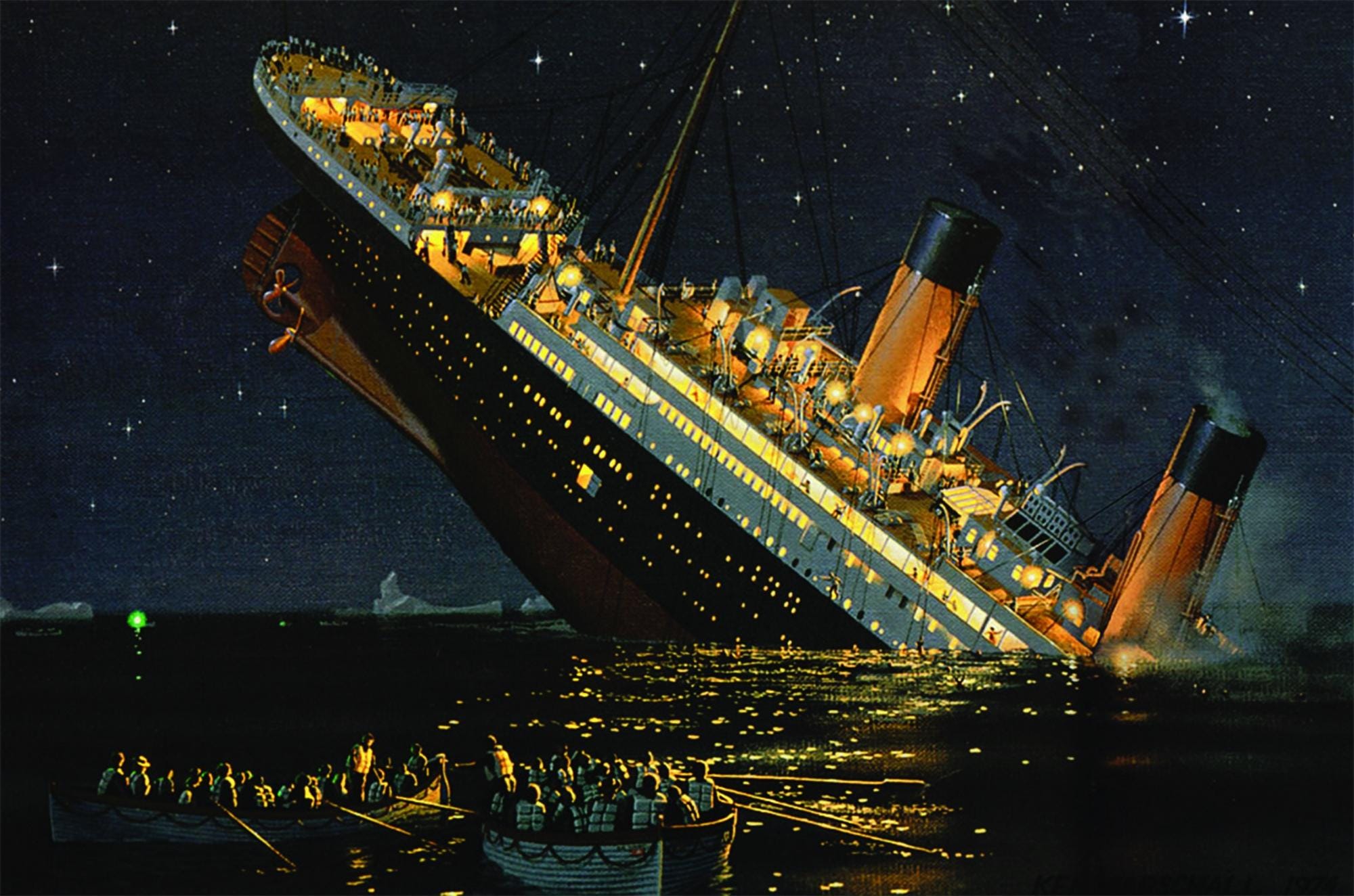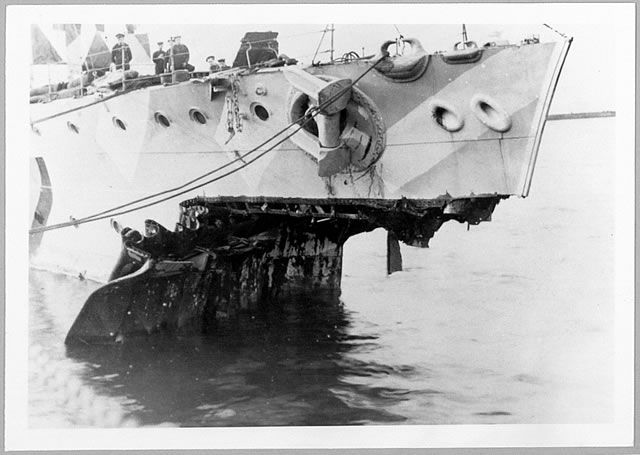
The Titanic
Four ways in which everyone could have been saved

After the official inquiries into the Titanic disaster of 1912, many questions remained unanswered. While many have speculated and commented in subsequent years about the various levels of competency among the Titanic's crew, and about the inquiries themselves, here are 4 ways in which the entire compliment of passengers and crew could have been saved -- none of which came up at these hearings.
1 -- Steer straight into the iceberg.
The Titanic's lookouts spotted an iceberg only at extremely close range, because Captain Smith had not ordered that spotlamps be erected on the bows. It was a clear night, not at all misty or foggy and these would have had a considerable range, especially when trying to see a large white object against a black background.
However, upon the iceberg being sighted and the alarm raised, the officer on duty, William Murdoch, then attempted to steer clear of the berg despite this immediate proximity. In this he ignored the logic which dictated that if he tried to avoid the berg at such close quarters he would scrape hundreds of feet of hull against the berg and open up every watertight compartment, whereas if he steered straight into the berg, then only the front watertight compartment would have been damaged and the ship would have remained afloat.
However Murdoch was a product of the training standards of his time, and of his self-preservation driven human nature.
This doesn't mean, however, that the best officers in the service wouldn't have thought of it; here's a pic of another vessel from that period, which hit a large rock which materialized in thick fog with seconds to spare, the damage being the result of a deliberate tactical decision by the captain. Here, the first bulkhead held. But if it hadn't, then the next one behind it certainly would have. The Titanic had five of these.

Confronting an iceberg at point blank, a highly trained officer would have seen
that the game was up, the iceberg could not
be avoided -- and he's as good as just lost the nose of his ship because he's
going to deliberately steer straight
into it rather than open up the side of the ship and flood every watertight
compartment. But he will still
have his ship,
and
his passengers their lives.
Lesser capable officers might instinctively throw the wheel hard over, despite
knowing that a
collision could not be avoided but being at a loss as to what else to do. The
consequences of this
are appalling to contemplate.
In better hands, the Titanic would have limped home looking like this.
2 -- Don't stop -- just make straight for the Californian
Upon hitting the iceberg, the Titanic was stopped by order of her captain, Edward John Smith. This was again an instinctive action, as in, "Oh there's been an incident. Let's stop and have a look". However, immediately after hitting the berg the ship still had considerable forward momentum and a full head of steam, which after stopping might have taken a while to build up again.
If the captain had been a quicker and more disciplined thinker he might have ordered that the ship keep going, and steer in the direction of the Californian, a ship now known to have been about 13 miles away. It would have taken the Titanic about 45 minutes to reach her, after which time the propellers, we also know, would still have been in the water instead of having lifted out. As it is, the Titanic took 2 hours and 40 minutes to sink and so there would have been ample time to transfer everyone dry-shod onto the Californian before the Titanic then sank right next to her.
3 -- A tiny morse lamp? What's wrong with the electricity master switch?
During the emergency the Titanic saw and attempted to contact the nearby Californian by radio, but when no reply was received (Californian's radio operator had closed down for the night), the officers on the Titanic then ordered that contact be attempted with a morse lamp.
Now these were relatively small devices, and even though the night was clear it stretches the imagination somewhat to consider that one of these would be seen 13 miles away, especially against the background of a brightly lit ship.
However, if the electricity master switch (in the engine room) had instead been used to flash the entire ship on and off, S-O-S ... then that would easily have been seen by the Californian which could then have attended in under an hour; less time still if (2) above had also been implemented and the 2 ships had met half way.

This switch would have turned the entire ship into a beacon which, given the
advantage of it being night time,
the nearby Californian, whose lookouts were bemusedly observing the Titanic, could not have missed.
The disruption to the passengers would have been minimal due to the brevity of the flashes.
4 -- Stop for the night.
The simplest idea of the lot. Shut down for the night due to the
ice. The Californian did. On the Titanic, however, the snooties who owned the
ship (and the shipping line) were pressing the captain to speed on, so that they
could arrive in New York in time for the morning newspapers instead of the
evening edition.
Now on the high seas the captain is undeniably the only authority aboard, no
matter what the calibre of anyone else, and he should have had the toughness to
resist this. The fact that he did not, again speaks volumes about the standards
of the time, particularly the inability of the training courses to filter out
'the wrong stuff'.
It's a sad truth that these unusual and unorthodox ideas -- which would all have worked -- are more typical of an independent thinker and would evaporate, or at least be overruled, as soon as that thinker embarked upon an orthodox training course where they have set ways of doing things. In being pushed into their mould he would regrettably assume their shape. It is imperative therefore that if this is what's going to happen, then these training courses, wherever we may encounter them, must be of an impeccably high standard -- which sadly we hardly get even these days let alone in 1912.
--- Michael Alan Marshall